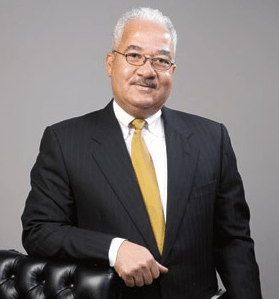Judge Directs Couple to Get Married after Woman Attempts to Light Her Boyfriend on Fire
Courts have handed a number of creative sentences over the last few years. Judges have ordered criminal defendants to wear signs outside the store they shoplifted from and buy flowers for their estranged wives. In western Pennsylvania, Quenesia Catasphany plead guilty to reckless endangerment. Last October, Ms. Catasphany had doused her boyfriend, Andrew White, with lighter fluid. Judge Joseph Williams III gave Ms. Catasphany an unusual option: Judge Williams could work out a lesser sentence if Ms. Catasphany and her boyfriend/victim got married.
 The reasoning behind Judge William’s proposal was rather simple. Catasphany was pregnant and would give birth to their fourth child two days later. Catasphany had accused her then boyfriend of having an affair and threatened to set White on fire. In the judge’s eyes, Catasphany lacked stability in her life. So in the hearing on March 23, Judge Williams proposed the two of them get married. If they did, Judge Williams stated they “might be able to work this out better.”
The reasoning behind Judge William’s proposal was rather simple. Catasphany was pregnant and would give birth to their fourth child two days later. Catasphany had accused her then boyfriend of having an affair and threatened to set White on fire. In the judge’s eyes, Catasphany lacked stability in her life. So in the hearing on March 23, Judge Williams proposed the two of them get married. If they did, Judge Williams stated they “might be able to work this out better.”
Later that day, Catasphany and White got married. Judge Williams personally married the couple himself. Catasphany told local media that she was very grateful for the opportunity to better their relationship and she appreciated the judge speaking on her behalf.
Married by Duress or Happy Ever After?
Catasphany seems to be happy with the end result, but there’s no word on whether her new husband is happy with the arrangement. Getting doused with lighter fluid and then having a judge arrange the victim’s marriage to the attacker doesn’t sound like a very romantic engagement. If one of the new spouses becomes unhappy, could Catasphany or White use their unusual marital circumstances as a way to untie the knot?
Theoretically, Catasphany and White could claim Judge Williams had coerced them into getting married. Marriage by duress would mean that the parties didn’t consent to being married and the marriage could be annulled.
This sounds good in theory, but courts interpret duress very narrowly. Catasphany was forced to make a choice between marriage and getting a higher sentence, but it was still her choice. Likewise, White could have declined the judge’s proposal and refused to marry the woman who threw lighter fluid at him.
In all the prior creative sentencing, the judge’s alternative sentence did not continue indefinitely. Using state power to convince people to get married is potentially a life sentence, a sentence longer than any jail time the judge could hand down for this particular crime. It’s also a continual relationship between a potential domestically violent relationship. Given the nature and length of this “sentence,” Catasphany and White each should have consulted an attorney before making a life-impacting decision.
Judge Williams proposal was reasonable, but expecting the couple to make a decision within three days meant that Catasphany and White couldn’t possibly foresee all the problems this alternative sentence might cause them in the future. Best of luck to the newlyweds.


Comments